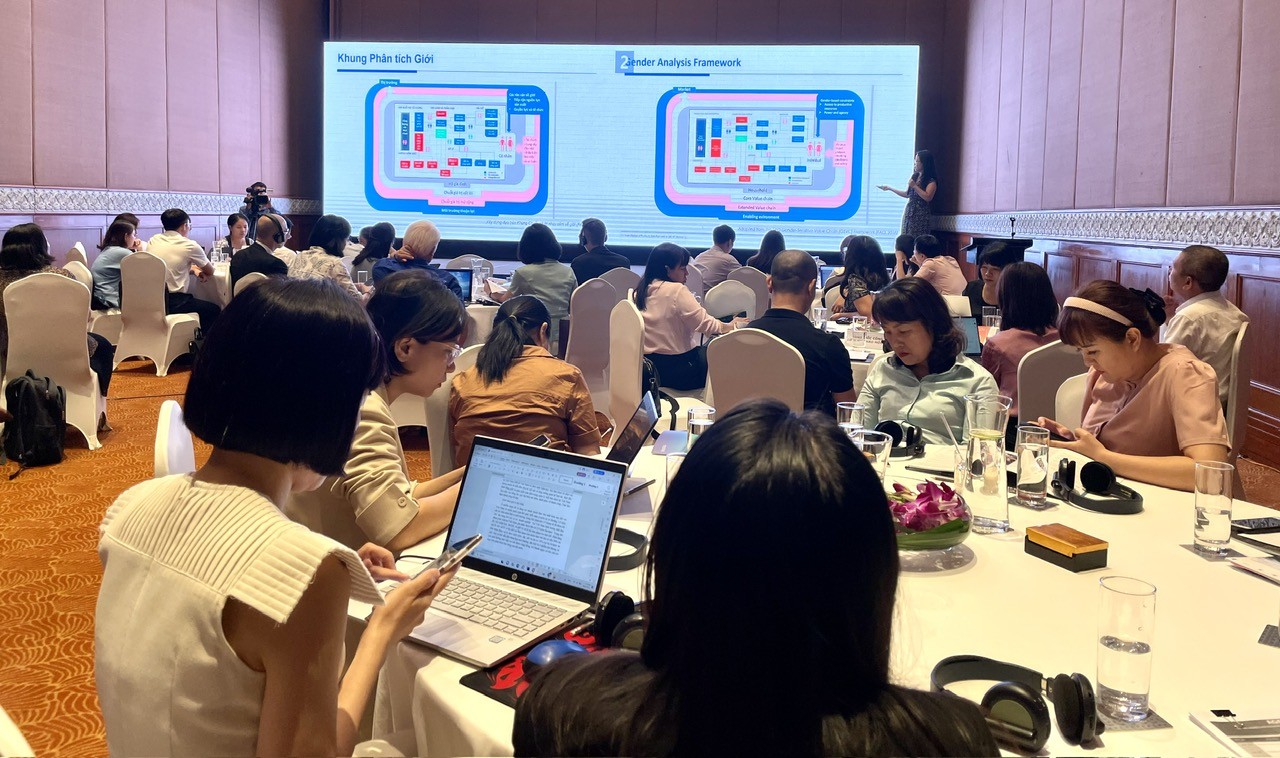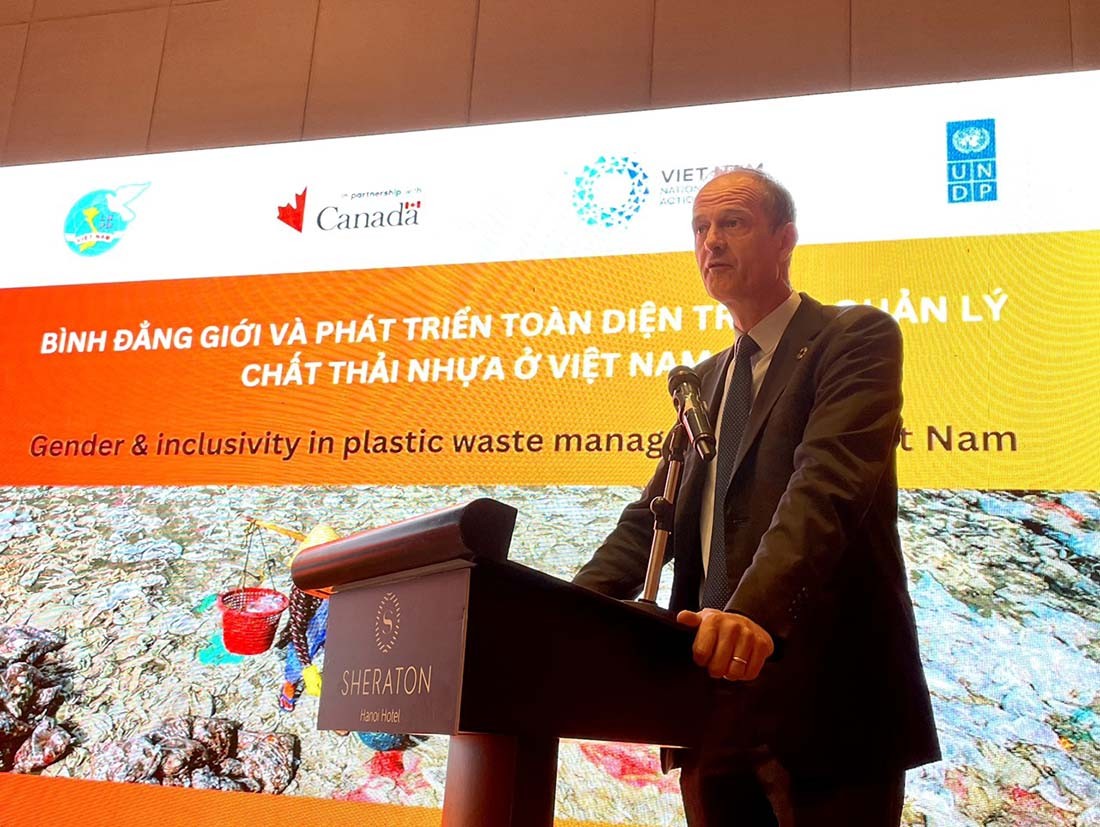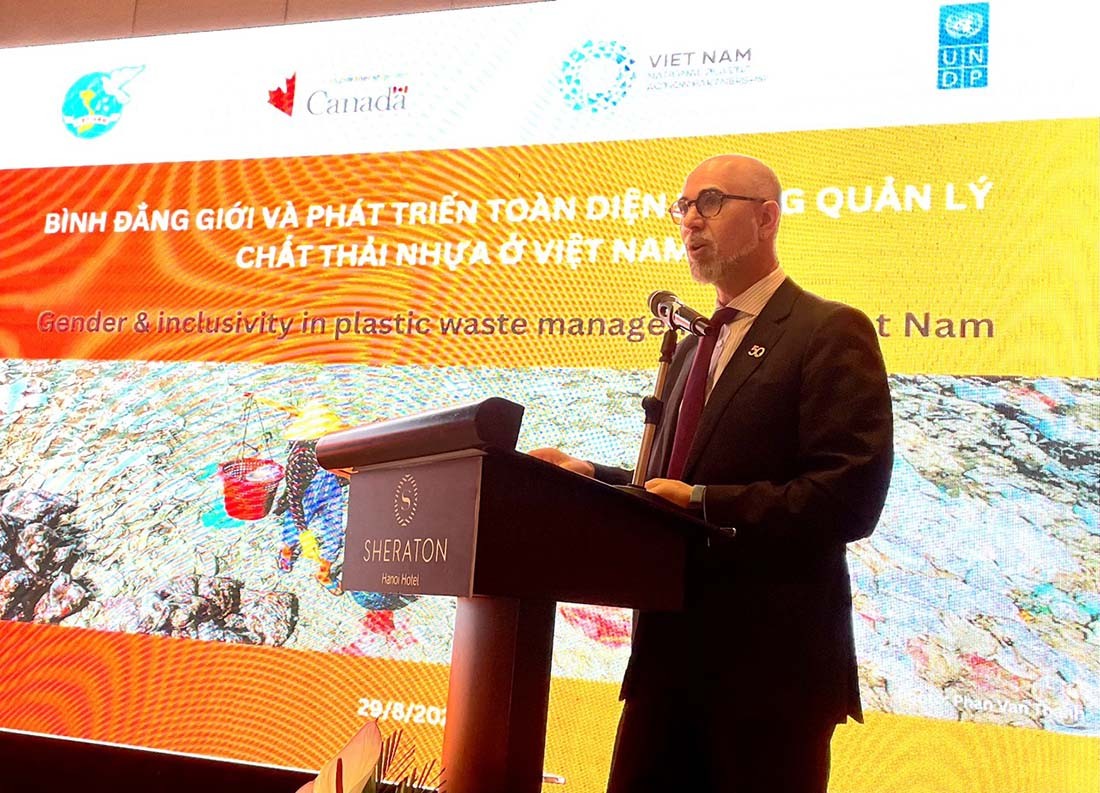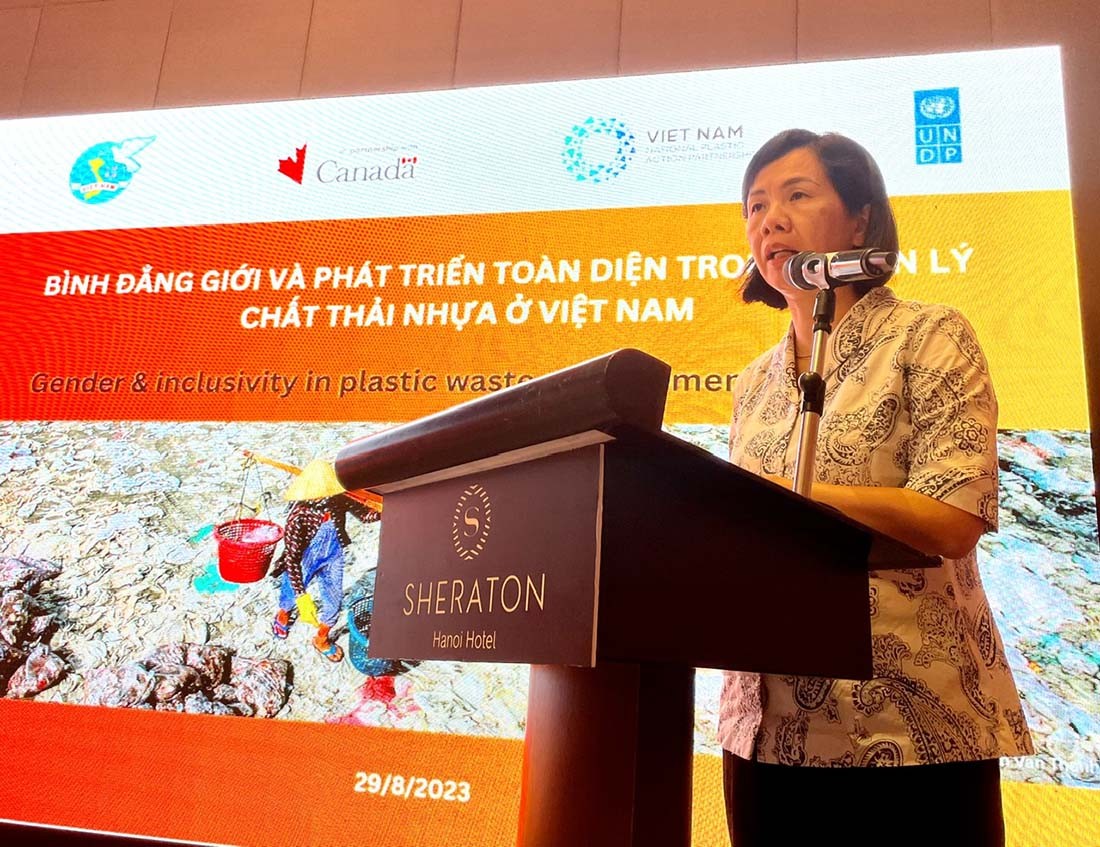
Mainstreaming gender equality and social inclusivity in plastic waste management in Vietnam
Latest
 |
| The workshop aims were to share the findings of the Viet Nam NPAP report on “Gender equality and social inclusion (GESI) in the plastic value chain in Viet Nam”. |
Participants at the workshop included the Women's Union, the Embassy of Canada to Viet Nam, UNDP, international and national development partners, and representatives from the business sector such as VietCycle.
The workshop aims were to share the findings of the Viet Nam NPAP report on “Gender equality and social inclusion (GESI) in the plastic value chain in Viet Nam” and raise awareness amongst relevant national agencies and other stakeholders on promoting gender and inclusivity issues in plastic waste management.
The workshop fostered fruitful discussions on women’s roles and contributions and how to enhance gender equality and inclusivity in plastic waste management at the household and community levels, emphasizing the need to include gender and social inclusion issues in the joint action plan that the Women's Union, Canadian Embassy, and UNDP Viet Nam and other members of the NPAP platform will propose to integrate fragmented solutions into an inclusive and sustainable plastic circular economy by leveraging resources from policymakers, experts, enterprises, and development partners.
Based on solid baseline research and analysis of relevant literature, the GESI report highlighted an assessment of the gender context and social inclusion issues in Viet Nam's plastic waste management system.
 |
| UNDP Deputy Resident Representative Patrick Haverman speaks at the workshop. |
This baseline research was conducted through an online survey with 601 community respondents, 9 group discussions with 63 formal and informal waste workers in Ha Noi, Ha Tinh, and Thua Thien Hue provinces, and interviews with 33 representatives and experts from the central level policy-making and governance of plastic waste management, NGOs, academia, Women’s Union chapters, local authorities, the private sector, and waste collecting and recycling workers.
The research showed that women take primary responsibility for managing daily housework and are also disproportionately affected by using plastic items. However, there remains a lack of research on the impact of plastic waste on the health of women, children and the elderly, as well as pregnant women.
"Women play a crucial role in the formal and informal sectors on collection, sorting, and recycling of plastic within households and communities. Authorities and communities should take women’s roles into account during policy formulation. Policymakers need more research, data, or evidence on plastic, gender, and social inclusion issues to avoid any adverse impacts on women, migrants, and other vulnerable groups when implementing the Extended Producer Responsibility (EPR) policies and other relevant policies," UNDP Deputy Resident Representative Patrick Haverman highlighted.
 |
| Canadian Ambassador of Canada to Viet Nam Shawn Steil shared that the Government of Canada is working with its partners around the world to reduce plastic waste and pollution. |
Canadian Ambassador of Canada to Viet Nam Shawn Steil shared that the Government of Canada is working with its partners around the world to reduce plastic waste and pollution. "A circular economy approach is needed to tackle how we produce, use and dispose of plastics, and coming to grips with the growing challenges related to human health, gender equality and social inclusion. In Vietnam, we all know that women play a central role in entrepreneurship, resource management, waste disposal and unpaid care work – much of which takes place in the informal sector.
Canada’s programming focuses on supporting women’s rights and livelihoods that complement efforts to transition to a more sustainable and circular plastics economy. We hope the GESI report launched today will inform the way we work together to ensure gender equality, inclusion, diversity and environmental stewardship in Vietnam,” said the Ambassador.
 |
| The Vietnam Women’s Union presented the Orientations of their activity plans in environmental protection and plastic waste reduction. |
At the workshop, the Viet Nam Women’s Union presented the Orientations of their activity plans in environmental protection and plastic waste reduction. From gender and environmental perspectives, including plastic waste issues, the Resolution of the 13th National Congress of Women's Deputies continues to identify environmental protection and actions against plastic pollution as one of the key tasks to be implemented in the next period at all levels of the Women’s Union, by its chapters, members, and individuals.
| The Viet Nam National Plastic Action Partnership (NPAP), hosted by UNDP Viet Nam, is a national-led multi-stakeholder platform that enables collaboration between the government and other partners to transform the commitments of reducing plastic waste and pollution into actions. The Viet Nam NPAP Leadership Board, chaired by the Vice Minister of the Ministry of Natural Resources and Environment and comprising of 34 members who are senior leaders of organizations, associations, and enterprises actively against plastic pollution, has approved the NPAP work plan in 2023 with the vision until 2023, focusing on promoting innovative solutions, unlocking finance, informing policy and boosting gender equality and social inclusion to shape a more sustainable plastic circular economy. |

















